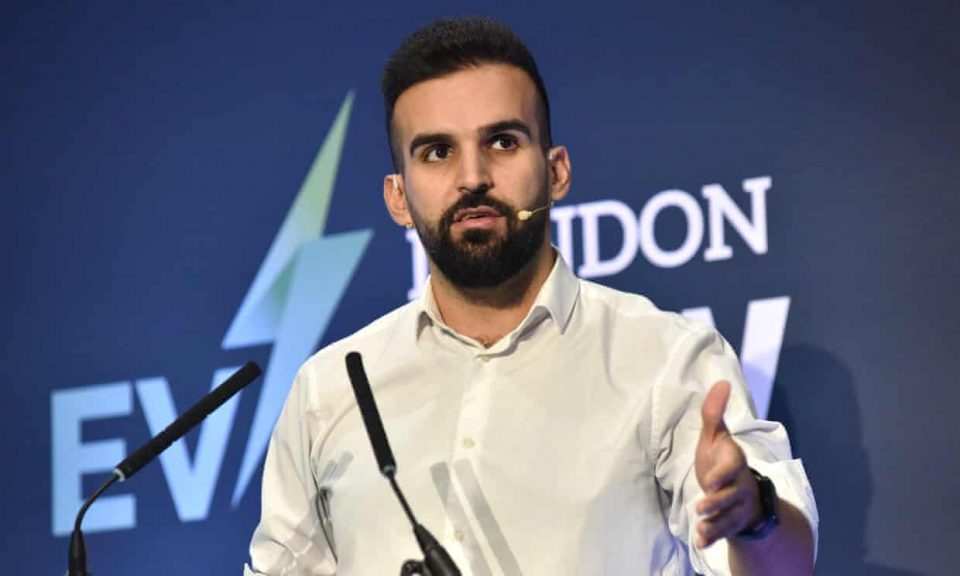The deputy mayor of London has stated that a variety of environmental initiatives being rolled out will significantly benefit working-class individuals and members of ethnic minorities.
Mete Coban, at 32 years old, grew up in a council housing unit in Hackney, which allowed him to witness firsthand the challenges posed by insufficient green spaces, inadequate housing, and air pollution.
Now, six months into his role as London’s youngest deputy mayor for environment and energy, Coban reflects on how those formative experiences have influenced his approach to the city’s environmental issues.
“Sometimes I need to remind myself of how far I’ve come. Growing up, I would observe my surroundings and think about how I could one day make a positive change. Though I wasn’t engaged in formal politics, I was concerned about my environment… and here I am now, taking on this significant responsibility—it’s just incredible,” he expressed.
His role encompasses a broad spectrum of concerns, including enhancing housing through retrofitting, and preparing London for the increasingly severe heat waves and floods expected as a result of the climate crisis.
Coban emphasizes that his primary goal is to ensure that the green transition—a movement he believes is gaining unavoidable traction—improves the lives of everyday working-class Londoners.
“The climate transition relates to social, economic, and racial justice for working individuals… We need to leverage this opportunity to uplift all communities and focus on how we can equitably distribute resources to some of London’s most underserved neighborhoods,” he stated.
Marginalized communities frequently bear the brunt of climate damage, facing issues like poorly insulated homes that are uncomfortable in the summer heat and costly during winter, alongside a lack of gardens or community green spaces and elevated levels of pollution.
Coban lists several priorities, such as allocating additional resources to hard-to-reach community organizations to enhance local green spaces, and collaborating with local councils on retrofitting projects aimed at lowering energy bills, mitigating dampness, and increasing heat resilience.
Recently, he introduced a £2 million fund designed to assist schools in installing insulation, heat pumps, and solar panels, which he believes could lead to annual savings of up to £18,000 for each institution. In the initial month alone, over 100 schools have applied for the funding.
Sharing a personal note, Coban, who along with Mayor Sadiq Khan, dealt with asthma in childhood, highlights that addressing air quality remains a top priority, advocating for greater use of walking, cycling, and public transportation.
There will also be a campaign aimed at informing the public about the harmful effects of wood-burning stoves, which are often used by upper-middle-class households for aesthetic reasons, while lower-income neighborhoods suffer more from the air pollution they generate.
“Wood burning is a significant concern, and many Londoners are unaware of the pollution it causes,” Coban remarked.
Coban was just 21 when he secured a council position in Hackney, where he participated in one of the UK’s largest low-traffic neighborhood programs, implemented traffic reduction measures around numerous schools, and facilitated the planting of thousands of new trees. He aims to bring similar initiatives across London.
“I recall the feeling of powerlessness when a youth club was closed in my neighborhood; my community lacked the resources and connections to advocate for it, and no one intervened. That experience motivated me to become a councillor, and now, my work is focused on ensuring that our efforts benefit everyday Londoners,” he shared.
During his initial months in office, Coban dedicated considerable time to visiting diverse communities—particularly youth in various areas of London—to hear their concerns and priorities.
“Londoners already have innovative ideas and organizational skills, and businesses are also proposing solutions for the green transition. Our role is to empower them and enhance their efforts,” he explained.
Reflecting on his journey, Coban admitted that just four months before becoming a councillor, he had no clear understanding of the role’s demands, and initially refrained from discussing his background—his father is a taxi driver and his mother a seamstress—out of a desire to avoid eliciting sympathy.
Now, however, he believes he has a responsibility to inspire young people in similar situations, demonstrating that they too can effect positive change in their communities.
“We envision London as a city where everyone has opportunities—not merely a place to work, but a place to call home, abundant in green spaces and healthy housing options,” he said. “This is an exciting time, brimming with potential, and we aim to energize Londoners about this transition.”


